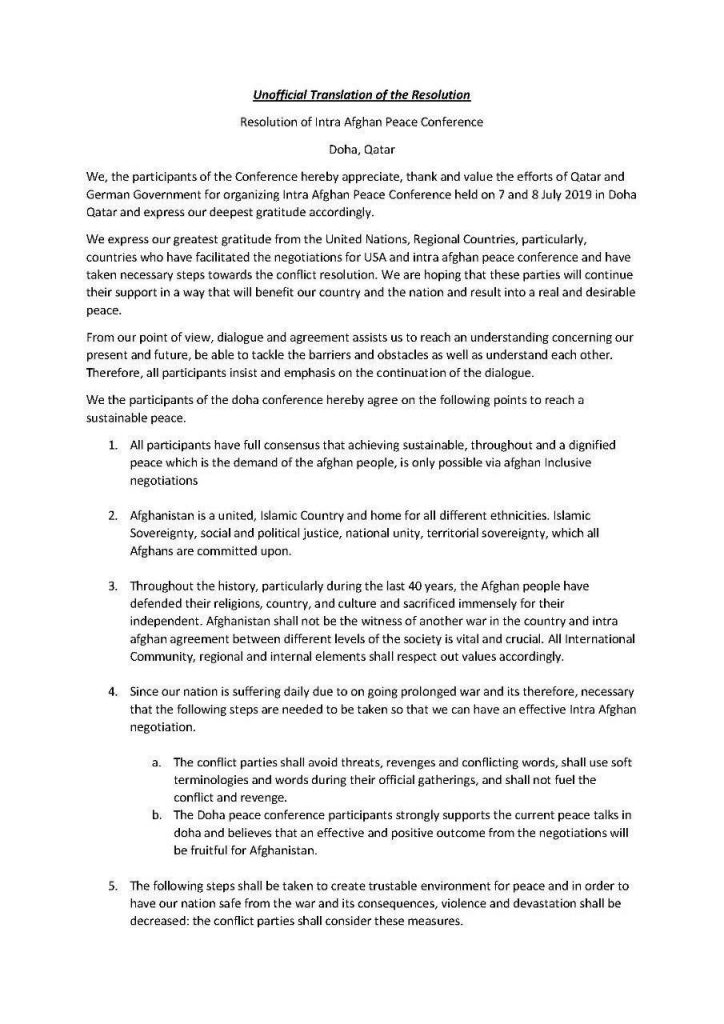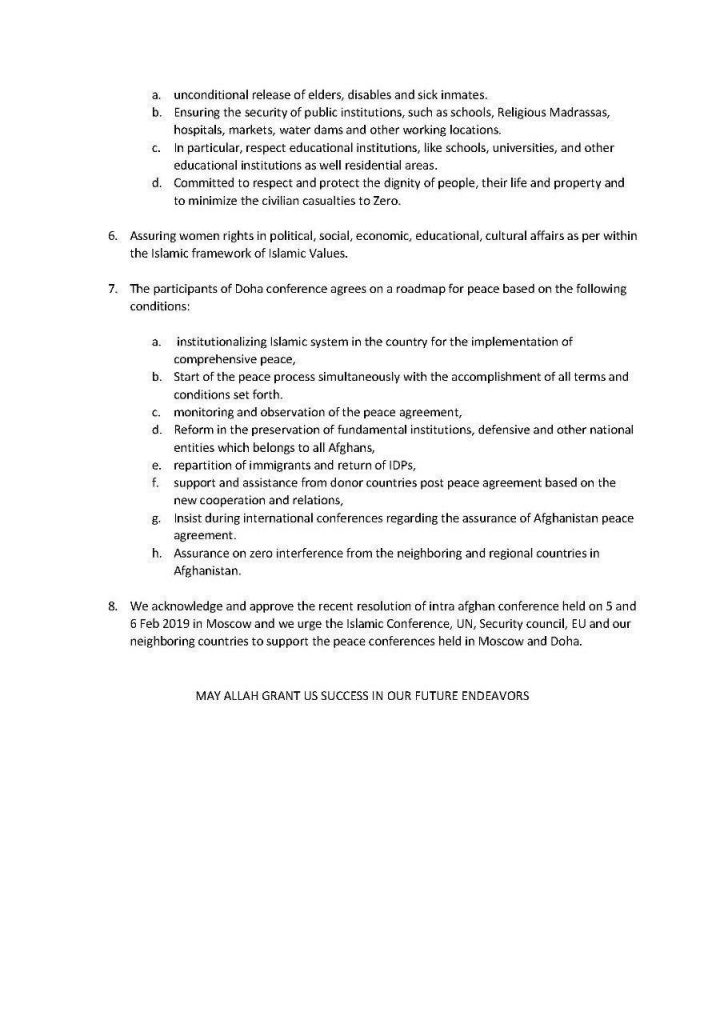Doha Conference ended by Issuance of a Joint Resolution
The two-day intra-Afghan conference about the Afghan peace process in Qatar ended by issuing a joint resolution consists of eight issues.

The two-day intra-Afghan conference about the Afghan peace process in Qatar ended by issuing a joint resolution consists of eight issues.
Qatar and Germany co-hosted the intra-Afghan meeting held on 7, 8 of July 2019 in Doha.

The participants from Kabul were a number of politicians, civil society members, journalists, and government officials. However, they have met with Taliban representatives with their personal capacity.
The resolution states that all participants are fully committed to the achievement of a lasting, universal and dignified peace that the will of the people of Afghanistan is possible and achievable through inclusive Afghan negotiations.
The participants emphasized that the rule of the Islamic system, the provision of social and political justice, the provision of basic citizenship rights, national unity, independence and the preservation of territorial integrity are the values that all Afghan people are committed upon.
The participants of the Doha conference agreed on the following points to reach a sustainable peace.
- All participants have full consensus that achieving sustainable and dignified peace which is the demand of the Afghan people, is only possible via Afghan inclusive negotiations.
- Afghanistan is a united, Islamic country and home for all different ethnicities. Islamic sovereignty, social and political justice, national unity, territorial sovereignty, which all Afghans are committed upon.
- Afghanistan shall not witness another war. The international community, regional and internal elements shall respect Afghans’ values accordingly.
- In order to facilitate effective intra-Afghan talks, the warring parties should avoid threats, revenge and conflicting words and shall use soft words.
- The Doha peace conference participants strongly support the ongoing peace talks in Doha and believe that effective and positive outcome from the talks will benefit Afghanistan.
- Following steps should be taken to build a trusted environment for peace and keep the nation safe from the war and its consequences. (A) – Unconditional release of elder, disabled and ill inmates. (B) – Ensuring the safety of public institutions including schools, madrassas, hospitals, markets, water dams, and workplaces. (C) – Respect educational institutions. (D) – Respect and protect the dignity of the people, their life and property and minimize civilian casualties to zero.
- Assuring that women’s rights are ensured in political, social, economic, educational and cultural areas within the framework of Islamic values.
- Agreeing on a roadmap for peace based on the following conditions:
• Institutionalizing Islamic system in the country.
• Start of the peace process simultaneously with the accomplishment of all terms and conditions set forth.
• Monitoring and observation of the peace agreement.
• Required reforms and support of basic institutions, defense, and other institutions which are belonged to Afghans.
• Repatriation of migrants and return of internally displaced persons (IDPs).
• Support and assistance from donor countries for a peace agreement based on the new cooperation and relations.
• Insist during international conferences regarding the assurance of Afghanistan’s peace agreement.
• An assurance on zero interference from neighboring and regional countries in Afghanistan’s affairs.
• We acknowledge and approve the recent resolution of an intra-Afghan conference held on 5 and 6 Feb. in Moscow and we urge We urge the Islamic conference, the United Nations, the European Union, and Afghanistan’s neighboring countries to support the peace conference held in Moscow and Doha.